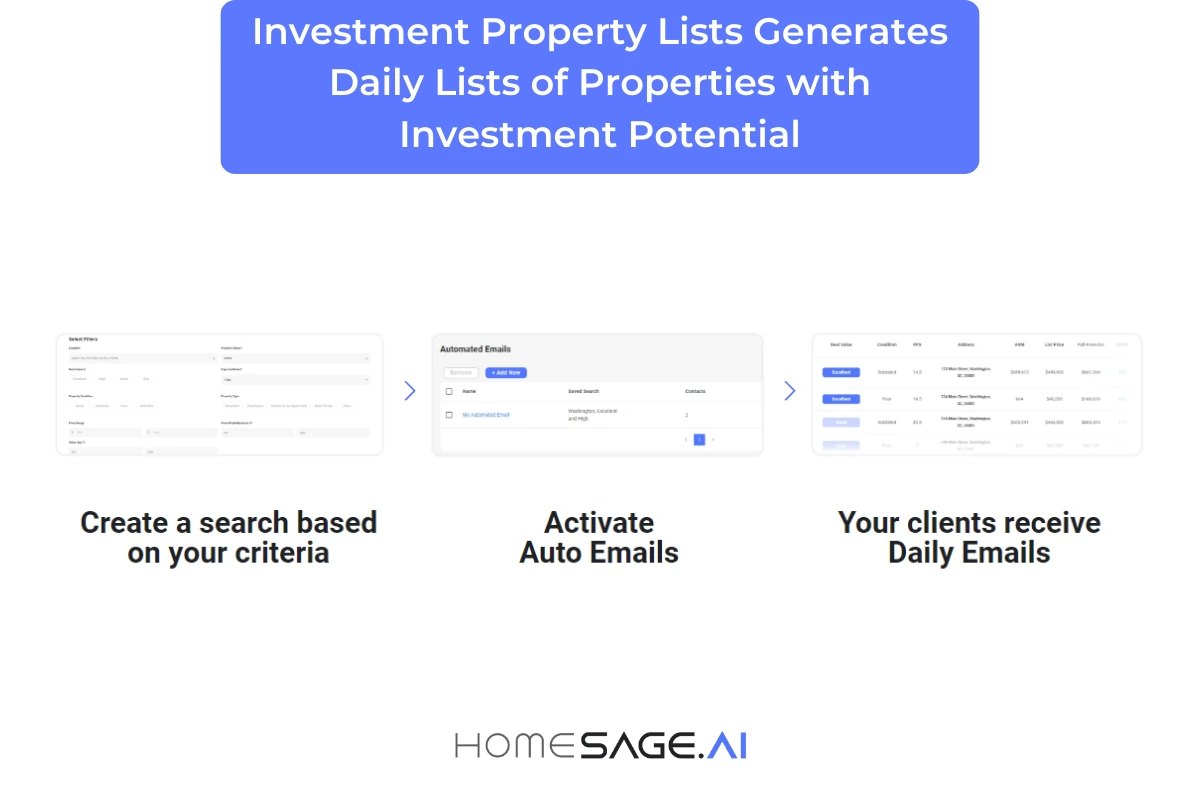Introduction
The real estate sector, traditionally characterized by its reliance on face-to-face interactions and manual processes, is now at the forefront of this technological revolution. AI’s integration into real estate websites marks a significant shift towards more efficient, user-friendly, and intelligent platforms.

This evolution is not just about technology; it’s about how real estate professionals, buyers, sellers, and investors interact with the market.
In this article, we delve into the various facets of AI applications in real estate websites, highlighting how they improve user experience, streamline operations, and open new horizons for the industry.
AI in Real Estate
Real estate’s journey with AI began with basic automation and data collection. But today, it encompasses a wide array of sophisticated applications.
Previously, AI in real estate was primarily seen in CRM systems for managing customer interactions and in basic data analysis for understanding market trends. However, the scope has dramatically expanded.
Now, AI technologies like machine learning algorithms, natural language processing, and predictive analytics are being employed to not only enhance the efficiency of various operations but also to provide deeper insights and a more personalized experience to users.
These advancements have led to a more dynamic interaction between real estate professionals and clients. For instance, AI-powered tools are now capable of analyzing vast amounts of data to identify potential investment opportunities, assess risk, and even predict future market trends with remarkable accuracy.
This level of analysis, which was once a time-consuming and complex task, is now more accessible and user-friendly, thanks to AI.
1. Enhanced Property Search Engines
One of the most user-impacting advancements of AI in real estate websites is the enhancement of property search engines. Traditional search engines on these websites often required users to sift through numerous listings that might not have matched their exact preferences or needs. AI changes this by introducing an intelligent layer of search functionality.
Using machine learning algorithms, AI-powered search engines can analyze a user’s past search behavior, preferences, and even interactions with various listings to provide a more refined and personalized set of results.
An example is the Investment Property Lists offered by Homesage.ai. It utilizes AI to generate daily lists of properties with potential for investment. This feature is designed to aid users in identifying promising real estate opportunities efficiently.

The lists are compiled using AI models, including computer vision, that analyze various factors, ensuring that the properties highlighted have significant investment potential.
This tool is particularly useful for those looking to invest in properties with a high likelihood of yielding positive returns.
2. Virtual Property Tours
AI-driven virtual property tours represent a quantum leap in how properties are showcased online. Unlike traditional static images or simple video walkthroughs, AI-powered virtual tours offer a highly immersive and interactive experience.
Using technologies like virtual reality (VR) and augmented reality (AR), these tours allow potential buyers to explore properties in a 360-degree virtual environment. They can “walk” through different rooms, get a feel of the space, and even interact with elements like opening doors or switching lights on and off, all from the comfort of their homes.
Moreover, AI algorithms can customize these tours based on user preferences. For instance, if a user has shown interest in spacious kitchens in past searches, the virtual tour can highlight kitchen features more prominently. This personalized approach not only makes the search process more efficient but also creates a unique and engaging user experience.
3. Automated Property Valuation
Accurate property valuation is critical in the real estate industry, and AI has made significant strides in this area. Automated property valuation models (AVMs) use AI to analyze various factors such as property size, location, market conditions, comparable property prices, and historical price trends to estimate a property’s value.
This automated approach to valuation offers several advantages over traditional methods. It is not only faster but also removes human bias from the equation, leading to more objective and consistent valuations.
An example of this kind of product is After Repair Value (ARV) by Homesage.ai. Here, the AI models detect the current physical condition of a given property and predict the cost of renovation based on numerous property attributes like property size, architectural style, location and work needed.
Subsequently, these models are able to predict the ARV based on the new condition of the property.
4. Predictive Analytics for Market Trends
AI’s role in forecasting real estate market trends is perhaps one of its most impactful applications. By analyzing large sets of data – including historical market trends, economic indicators, demographic shifts, and even social media sentiment – AI-driven predictive analytics can provide valuable insights into future market movements.

These insights are crucial for investors, real estate agents, and buyers alike. For instance, predictive models can identify emerging hotspots for investment before they become widely known, giving users an edge in the market.
5. Improved Customer Service with Chatbots
The integration of AI-powered chatbots on real estate websites has revolutionized customer service in the industry. These chatbots, using natural language processing and machine learning, can interact with users in a conversational manner, providing instant responses to queries.
This is particularly beneficial for answering common questions about listings, providing information about the buying or renting process, or even scheduling viewings.
Furthermore, these AI chatbots can learn from each interaction, becoming more efficient over time in handling complex queries. They can also provide personalized recommendations based on the user’s interaction history, enhancing the overall customer experience.
6. AI in Real Estate Marketing
The integration of AI in real estate marketing has revolutionized the way properties are promoted and sold. AI algorithms can analyze vast amounts of data to identify patterns and preferences in user behavior, enabling real estate websites to offer highly targeted advertising and personalized content.
This means that users are more likely to see properties and information relevant to their specific needs and interests.
AI also plays a significant role in lead generation and management. By predicting which users are most likely to buy or rent based on their online behavior, AI helps real estate professionals focus their efforts on the most promising leads.
7. Data Security and Compliance
In an age where data breaches are increasingly common, AI offers robust solutions for enhancing data security on real estate websites. AI systems can monitor website traffic for unusual activities, detect potential threats, and implement real-time protective measures.
This proactive approach to cybersecurity not only safeguards sensitive user data but also builds trust and credibility among users.
Moreover, AI is instrumental in ensuring compliance with various legal and regulatory requirements. For instance, AI can help in adhering to data protection laws by automatically identifying and managing personal data in line with legal standards. This is crucial for real estate websites that handle large volumes of personal and financial information.
Future Prospects
The future of AI in real estate looks incredibly promising. As technology evolves, we can anticipate even more sophisticated AI applications. For example, AI might soon be able to provide full-fledged investment advice, conduct negotiations, or even automate entire transaction processes.
Another exciting prospect is the integration of AI with other emerging technologies like blockchain for secure transactions, or the Internet of Things (IoT) for smarter, more connected homes.
These advancements could further streamline the buying and selling process, making real estate transactions more transparent, efficient, and user-friendly.
Conclusion
AI’s potential to reshape real estate websites is vast and multifaceted. From enhancing the user experience with personalized property searches and virtual tours to providing deep market insights and securing data, AI is setting a new standard in the industry.
As we continue to innovate and integrate new technologies like those offered by homesage.ai, the real estate industry stands on the brink of a new era, one that promises greater efficiency, transparency, and satisfaction for all parties involved.



